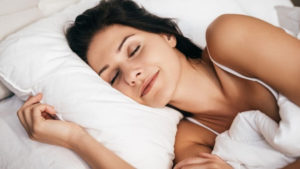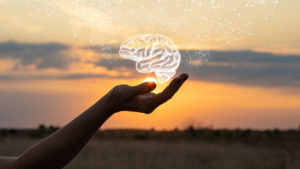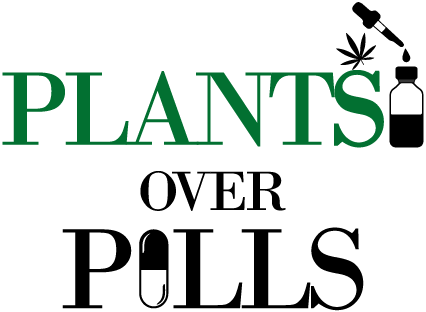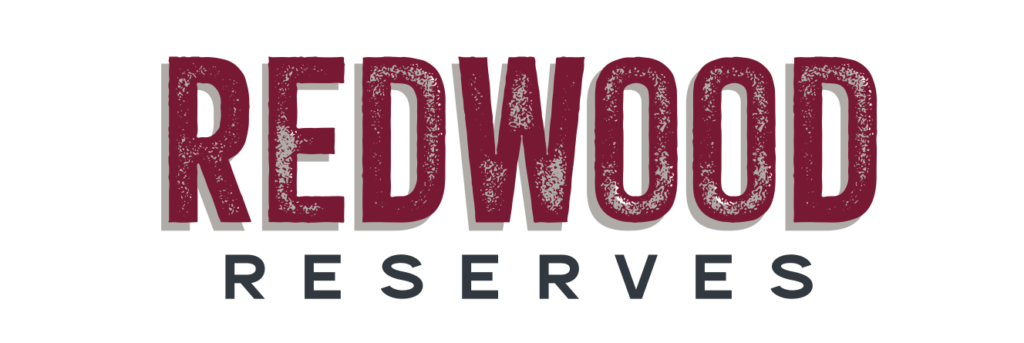Anxiety and panic attacks can be debilitating, but CBD offers the potential to ease them without prescription drugs. Read on to find out more.
Throughout a wide variety of studies, CBD has been shown to function as an effective anxiolytic, and reviews have concluded that it is worth further research to determine if it may be a new contender to help treat anxiety and anxiety-related disorders like PTSD and OCD.
In this article, we’ll review the research on CBD and its link to treating anxiety, CBD’s impact on panic disorder and panic attacks, methods for using CBD oil to treat anxiety, and the pros and cons of using CBD for anxiety over more traditional anxiety treatments.
Current research on CBD for anxiety
One of CBD’s most frequently touted usages is as a treatment for anxiety. Anecdotally, many users report significant benefits from using the compound for their anxiety, and one of the compound’s more frequently reported effects is improved mood and lowered stress. Still, for every individual who claims CBD has eliminated their anxiety, there are those who do not seem to feel any effects. As a result, it’s essential to consider the larger picture and look at how clinical studies of CBD’s efficacy as an anxiolytic fit into the scene.
One 2015 review of CBD’s potential as an anti-anxiety drug goes through the mountain of evidence pointing towards CBD as a new frontier for treating anxiety and anxiety-related disorders like OCD and PTSD. First, it addresses CBD’s potential mechanisms for treating anxiety, such as CBD’s interactions with critical receptors like TRPV1 and 5-HT receptors, both of which being receptors that play a role in brain health by impacting the creation of vital neurotransmitters like glutamate and serotonin. The review acknowledges the endocannabinoid system, or the cell-signaling system in the body with which CBD interacts, as a major component in emotional health. The review also goes over 49 human and animal studies, nearly all of which found that CBD functioned as a significantly effective anti-anxiety compound when administered at moderate dosages. The review then concludes by saying that CBD effectively reduces anxiety related to a wide variety of anxiety disorders and that it does not produce further anxiety, nor does it have any major risks associated with taking it for this purpose.
Other studies — even ones not included in this omnibus review — seem to point to the same ideas, indicating that CBD is consistent across the board for treating anxiety. However, more human studies have yet to come out. The more clinical evidence there is, the more studies will begin to refine their findings, differentiate between anxiety-related disorders, or potentially discover the exact mechanisms by which CBD can alleviate anxiety.

Does CBD help anxiety panic attacks?
In addition to CBD’s demonstrated anti-anxiety effects, which can prove beneficial in a variety of disorders, including generalized anxiety disorder (GAD), social anxiety disorder (SAD), post-traumatic stress disorder (PTSD), obsessive-compulsive disorder (OCD), CBD has also been studied for its potential to reduce panic attacks.
One 2017 review, for instance, examined a variety of previously published journal articles to determine the relevance of CBD for panic disorders. It determined that the current literature indicates that, while there are no studies on human panic attacks and CBD currently, its general anxiolytic effects suggest that it would be an effective treatment for panic disorder. Furthermore, CBD has been shown to have very few adverse side effects, unlike many medications commonly prescribed for treating panic attacks and panic disorder.
It’s unclear whether or not CBD can stop a panic attack, mainly because CBD may take longer to begin working than the length of a panic attack. Furthermore, human studies of CBD tend to focus more on simulated distress, like simulated public speaking events, rather than the real distress felt in panic attacks. That sort of fear would be difficult to replicate in human participants without causing somewhat excessive levels of emotional pain in patients. However, CBD research may eventually progress to open-label testing in which there is no control group, and participants with panic disorders take CBD and report reductions in panic attacks against a baseline.
How much CBD should I take for panic attacks?
Some guidelines indicate that CBD is the most effective at treating anxiety between 300 mg and 600 mg. However, more anecdotal reports suggest that lower dosages — around 25-50 mg — are just as effective. It may be worth testing out to find the perfect dosage for your anxiety before you are even dealing with a panic attack. It may be uncomfortable to take too high of a dose or too low of a dose while you are already experiencing extreme discomfort.
Furthermore, CBD may not stop a panic attack once it has already started, as it may not work fast enough or have a strong enough effect on the intense fear response in the brain that characterizes panic. Some CBD users opt to use it before their panic onsets to calm down and prevent a panic attack before it even begins.
How to use CBD oil for anxiety
Using CBD oil for anxiety can be simple and easy, as long as you know your perfect dosage and ideal delivery method. However, it’s not always simple to determine what is right for you when it comes to using CBD when you’re just starting.
CBD dosage for anxiety in mg
Dosage for CBD may be challenging to ascertain generally, especially if you are new to using it. However, it’s important to keep in mind that CBD for anxiety has generally been shown to function in a bell curve of efficacy — that is to say, CBD is not particularly effective at very high doses, nor very low doses, but moderate doses can be highly effective. Additionally, dosages can vary from person to person, depending on various factors like weight, diet, metabolism, among other things.
However, one study showed that CBD doses for adults looking to treat anxiety work their best at anywhere between 300 mg to 600 mg, with the golden spot generally being around 300 mg. Above or below these numbers, the study seemed to imply, you might find that you’re not feeling anything, or that your discomfort from other effects is outweighing the stress relief. However, many individuals start much lower than that for anxiety, using only about 25-50 mg per day.
Remember that it’s always better to start low and scale up than to start high and scale down. Start with a dosage of around 25 mg and see if that works for you. If not, feel free to use a little more the next time you decide to dose CBD, increasing your dosage in increments of 25 mg or 50 mg.
Finally, if your dosage doesn’t seem right, you may want to consider consulting your doctor. They can not only recommend if CBD is right for you given other medications you take (as CBD can have potential drug interactions that are important to be wary of), but they can also potentially recommend dosage guidelines for you based on what they know about your health.
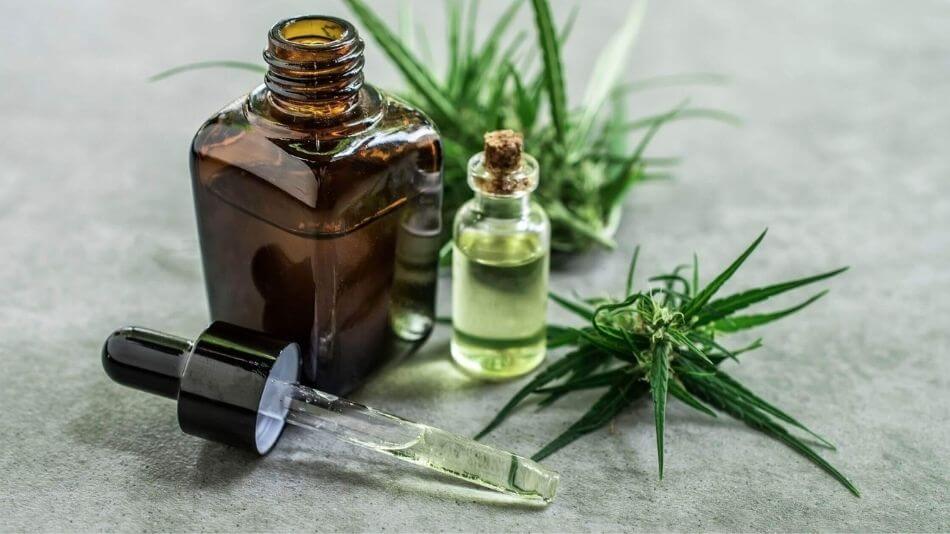
How long does CBD oil take to work for anxiety?
The time it takes for CBD to begin working depends on various factors, including your weight, diet, and metabolism, with the most important of which being your method of delivery. CBD oil comes in four standard forms of delivery: oral, sublingual, and transdermal/topical.
Oral CBD
Oral CBD is one of the most common methods of using CBD, as it is the method of delivery that is the most inconspicuous, as well as the most reminiscent of traditional vitamins and medications. After all, many people use CBD out on the go or in professional settings and would like to take it in a way that is not at all reminiscent of cannabis. Oral CBD comes in forms like CBD gummies, CBD edibles, and CBD-infused drinks, CBD softgels, and CBD oils that individuals swallow without allowing the oil to absorb in the mouth.
While oral administration of CBD is a generally no-frills method of delivery, it is, unfortunately, one of the slower and less potent administration methods. The slower delivery time is because CBD that is swallowed is metabolized by the stomach and digestive system in a manner and speed similar to how food is digested and metabolized.
Furthermore, oral CBD falls victim to a metabolic phenomenon called first-pass metabolism, in which a compound is metabolized heavily before it even reaches systemic circulation. This leads to a reduction in potency, which means that oral CBD may not always help alleviate your anxiety at a low enough dose.
Orally administered CBD will take anywhere from 1 to 2 hours to begin working. This can be especially difficult to deal with if you are taking CBD to address anxiety that has onset suddenly. However, for individuals who would like to use CBD to manage more general anxiety, this may work — you could take it in the morning like a vitamin and know you’ll have relief for most of the day.
Sublingual CBD
Sublingual CBD, by contrast, is a much speedier method of delivery. Sublingual is any CBD product that is absorbed under the tongue and through the tissues of the mouth, such as a CBD oil that is held in the mouth or a CBD powder rubbed on the mouth tissue. Through oral absorption, sublingual CBD bypasses metabolism in the stomach and goes straight to systemic circulation quite quickly. This also makes sublingual CBD a more potent form of CBD than oral CBD.
Consequently, sublingual CBD will take anywhere from 15-45 minutes to begin working. Sublingual CBD may be ideal for individuals who feel anxiety come on very suddenly and are looking for ASAP relief.
Topical CBD
Topical CBD never reaches system circulation, so it is not a very good bet for treating anxiety, the brunt of which has its chemical processes triggered in the brain and nervous system. However, if you’re looking to ease anxiety-related muscular tension, topical CBD should take anywhere from 1-2 hours to begin working effectively.
Pros and cons of CBD oil for anxiety
CBD oil as a treatment for anxiety may be an excellent option for some individuals who are not satisfied with traditional anxiety treatment. Some of the pros and cons of CBD for this purpose include:
Pros
CBD has fewer side effects than traditional anxiety medications
Traditionally, doctors have prescribed medications like benzodiazepines, SSRIs, MAOIs, and beta-blockers to treat anxiety. However, these drugs can cause a wide range of undesirable side effects that may even be dangerous to your health. For instance, benzodiazepines can cause depression, memory problems, drowsiness, and motor problems. Furthermore, benzodiazepines are habit-forming, and withdrawal from them can cause seizures. MAOIs can have very negative interactions with a wide variety of common foods and medications. SSRIs can cause rashes, headaches, stomach problems, agitation, and sexual issues and can cause health issues like serotonin syndrome and withdrawal flu.
CBD, by contrast, is typically well-tolerated, with its only prominent side effects including dry mouth, diarrhea, drowsiness, and reduced appetite. These effects are generally only felt at higher doses, too. CBD is not habit-forming, and there is no risk of stopping CBD suddenly without weaning off.
You can consume CBD in a wide variety of ways.
CBD comes in several forms, including whole CBD flower, CBD oil, CBD patches, CBD ointments, CBD gummies, and far, far more. This variety may be more appealing and more relevant to your lifestyle than other methods of medication delivery — most traditional anxiety medications just come in the form of pills and tablets. You may be able to find more and better ways to weave a wider variety of CBD products into your daily routine than if you just had to take them in the form of a pill.
CBD can help with symptoms associated with anxiety
In addition to potentially easing anxiety, CBD may offer relief for other symptoms associated with or caused by anxiety. CBD has been known to reduce inflammation, which may help to soothe stomach pains, alleviate headaches, and relieve tension. Furthermore, CBD is a vasodilator, which means that it can help open up blood vessels and lower high blood pressure caused by anxiety and nervousness.
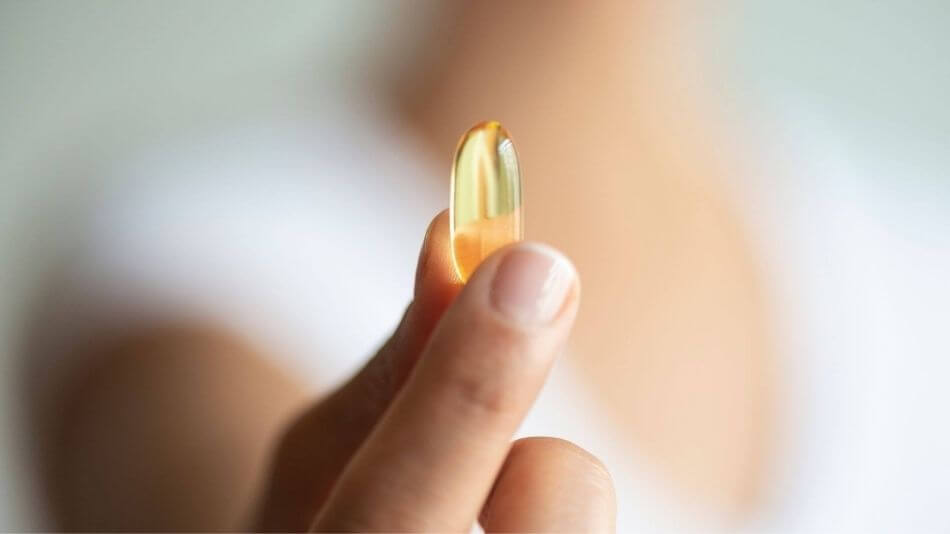
Cons
Using CBD for anxiety may be more expensive than prescription medications.
Most studies regarding CBD and anxiety point to broadly positive effects — however, most of these studies also test high dosages, generally anywhere from 300-600 mg per individual. Some of them note that anxiolytic benefits were not found in dosages under 150 mg. If this is true, that means that individuals would have to pay incredibly steep prices to take an effective enough dose every day since many CBD bottles come in 300 mg doses for the entire bottle.
By contrast, prescription anti-anxiety medications may be expensive, but not nearly that expensive. Furthermore, prescription medications for anxiety may be covered by your insurance, whereas CBD oils will not be, as there is currently only one prescription use for CBD oil and it is not prescribed for anxiety, but rather for specific forms of epilepsy.
Dosing CBD can be imprecise
CBD dosages are pretty imprecise as they are — they are not prescribed by a doctor, who can have a pharmacy worker give you pills with the exact proper dosage for you and your particular anxiety problems. Instead, CBD comes in non-medical-grade packaging, which does not always indicate how much you must use or how often. The research is not entirely sure on how much is enough or too little, as CBD testing research is still trying to determine precisely how viable CBD is in anxiety treatment. As a result, even well-informed sources must leave a good deal up to the reader, as they can never be sure what the correct amount is.
There is little research into the long-term effects of taking CBD.
Unfortunately, we don’t exactly know what impact taking CBD consistently over time will have on an individual’s health in the future. As far as research can tell, it doesn’t seem to be harmful to our bodies and may instead have largely beneficial effects beyond simply treating anxiety. However, not enough time has passed to declare this as a certainty — even marijuana and THC studies, which have been going on longer, don’t seem to indicate with any certainty what the outcomes are when an individual uses cannabis compounds very frequently over time.
Takeaways
CBD offers a lot of potential as a future clinical treatment for anxiety and may even do a great job as an alternative to traditional anxiety medications that may not work for some individuals or simply have side effects that are too unpleasant. CBD is remarkably effective in easing anxiety, even in healthy people. However, further research will have to be conducted to focus on the specific anxiety-related disorders CBD may treat and the dosages, drawbacks, and side effects that come with using CBD for this purpose, as a good deal of the research is still uncertain.
If you’re interested in potentially using CBD to treat anxiety or supplement other anxiety medications, consider browsing our directory of CBD products. Here, we offer a wide variety of different CBD formulations to choose from, from CBD oils to CBD isolates, gummies, pre-rolls, flower, and more.
Frequently Asked Questions (FAQs)
Does CBD really work for anxiety?
Given how recently CBD was legalized, the body of research on its efficacy as a treatment for many illnesses is pretty limited. However, what research we do have is pretty promising, especially in the realm of anxiety treatments.
How anxiety works is still somewhat murky, but a lack of serotonin plays a large role in emotional dysregulation for individuals with anxiety disorders. According to clinical research, CBD and serotonin seem to have a relationship that can help to mitigate apprehension and anxiety. CBD increases the availability of serotonin in your body to be absorbed, alleviating feelings of fear and even helping with some symptoms of depression.
Additionally, plenty of anecdotal reports of peoples’ experiences with CBD point to its efficacy as a treatment for anxiety. For many users, CBD can generate a real sense of ease, bliss, or drowsiness that can help with anxiety, anxiety-related disorders, and many of the unpleasant symptoms that come with them.
Can CBD give you panic attacks?
No, pure CBD cannot give you panic attacks. CBD has anti-psychotic and anti-anxiety properties, and has been used to reduce paranoia from consuming too much THC. It may even be helpful to you in treating an anxiety attack.
However, some CBD products may have too much THC for individuals who feel anxiety when they smoke marijuana or consume marijuana products. If THC gives you panic attacks but you are considering starting a CBD regimen, seek out hemp-derived broad-spectrum CBD oils or CBD isolate, which both contain no THC. Avoid full-spectrum CBD products, which are undistilled and may contain high enough levels of THC to cause anxiety.
For some users, CBD products may cause effects that seem reminiscent of an anxiety attack, such as dry mouth, upset stomach, and fatigue, but panic attacks should not be an issue with well-sourced broad-spectrum or isolated CBD.
How soon does CBD oil work for anxiety?
The speed with which CBD can work may vary depending on a variety of different factors (such as bioavailability), but one big factor that can affect it is method of ingestion.
Hypothetically, intravenous use of CBD would be the fastest, most effective method, with the effects being felt in minutes. However, this method is not commonly practiced in clinical settings, and would be nearly impossible for the at-home user.
Oral ingestion is another quick method, with inhalation (vaping CBD or smoking hemp flowers) being the quickest, taking up to fifteen minutes for the effects to be felt. Sublingual ingestion (taking it under the tongue) also works quite quickly. Edibles and gummies may take a bit longer — somewhere between one and six hours for it to be absorbed fully.
Topical creams and ointments are probably not helpful for anxiety, as they do not absorb into the bloodstream, and thus would only help with physical aches and pains.
What is the best CBD oil for anxiety?
For sufferers of anxiety, it is recommended that they seek out a CBD oil that is low in THC or contains no THC.
Consider seeking out hemp-derived CBD oil. Hemp is legally classified as any Cannabis plant containing less than 0.3% THC by dry weight, which significantly reduces the amount of THC you may be consuming. Additionally, seek out broad-spectrum CBD products, which have been distilled to remove all THC, or CBD isolate, which is pure CBD with none of the other compounds that are found naturally in hemp.
Try to seek out high-quality, well-sourced CBD. The industry for CBD is young and not FDA regulated, which can lead to poor labelling and unclear sourcing. CBD Facilitator offers a directory of online CBD sellers who can connect you with trustworthy brands that care about your health.
What drugs should not be taken with CBD?
CBD has many drug interactions. As a general rule, avoid taking CBD while taking any medications that might come with a grapefruit warning. Similarly to grapefruit juice, CBD can either counteract or potentiate important medications, messing with the amount of the medication that is in your body in an unhealthy way when taken at high enough doses.
Any drugs that are metabolized by CYP450 enzymes should be avoided. These drugs can include:
- Lamictal
- Ibuprofen
- Acetaminophen
- Tylenol
- Xanax
- Allegra
- Zofran
- Valium
- Prilosec
While CBD is often consumed at too low a dose to have any major interactions with these drugs, always consult a doctor before beginning a new CBD regimen.


